6 Best Eco-Friendly Flower Farming Practices
Did you know that eco-friendly flower farming practices can reduce environmental impact by up to 30%? As the world becomes more conscious of sustainability, the floral industry is also embracing green practices. In Dubai, where the demand for exquisite blooms is ever-growing, adopting sustainable farming methods is crucial. Not only does this ensure the longevity of our planet, but it also guarantees that you receive the freshest, most vibrant flowers. When you buy from the best flower shop in Dubai, you’re supporting a commitment to eco-friendly flower farming practices that prioritize the health of our environment.
Eco-friendly flower farming practices encompass a range of methods designed to minimize the ecological footprint of flower production. These practices are essential in a city like Dubai, where the combination of modern luxury and environmental stewardship sets a high standard. By choosing flowers from farms that use sustainable methods, you contribute to a greener future while enjoying beautiful, high-quality blooms. Whether you are looking for a rose flower bouquet or a stunning lily flower arrangement, knowing the source of your flowers can make a significant difference.
Eco-Friendly Flower Farming Practices
Eco-friendly flower farming practices are transforming the floral industry, ensuring that the beauty of nature is preserved while meeting the demands of flower enthusiasts. By implementing sustainable methods, flower farms can reduce their environmental impact, conserve natural resources, and promote biodiversity.
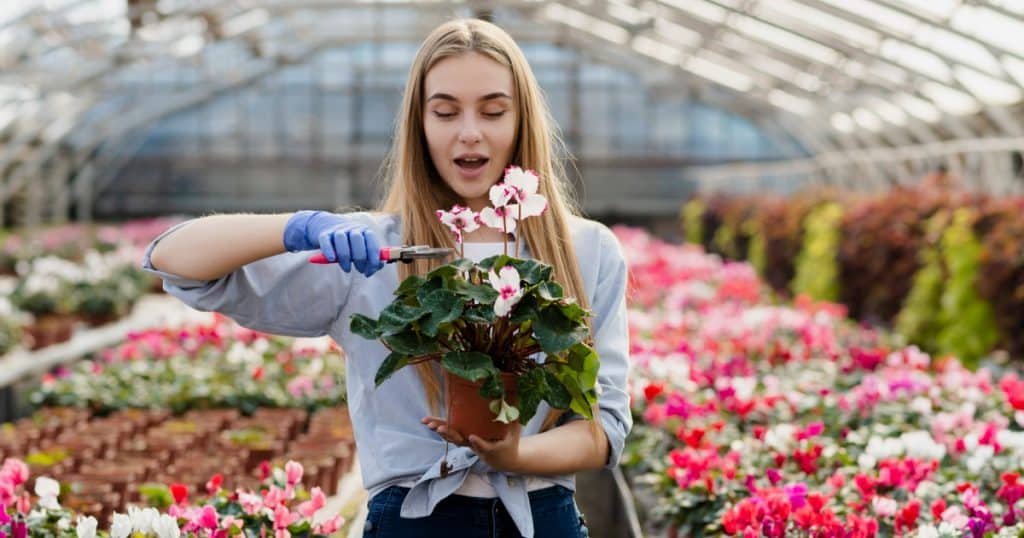
For example, tulip farming and spray rose farming can benefit immensely from eco-friendly practices. Sustainable tulip farming often involves the use of organic fertilizers, integrated pest management, and water conservation techniques. These practices not only enhance soil health but also reduce chemical runoff into nearby water bodies.
Similarly, in spray rose farming, adopting organic pest control methods and composting plant waste contribute to a healthier ecosystem. These methods ensure that the flowers you receive are not only stunning but also grown with the utmost care for the environment. Choosing flowers from farms that prioritize eco-friendly practices helps support a sustainable future, making it possible to enjoy beautiful blooms without compromising the planet’s health.
Sustainable Soil Management
Sustainable soil management is crucial for the long-term health and productivity of flower farms. It involves practices that maintain and improve soil health, ensuring that it remains fertile and resilient against erosion and degradation. By focusing on sustainable soil management, farmers can grow healthier plants with better resistance to pests and diseases, reducing the need for chemical interventions.
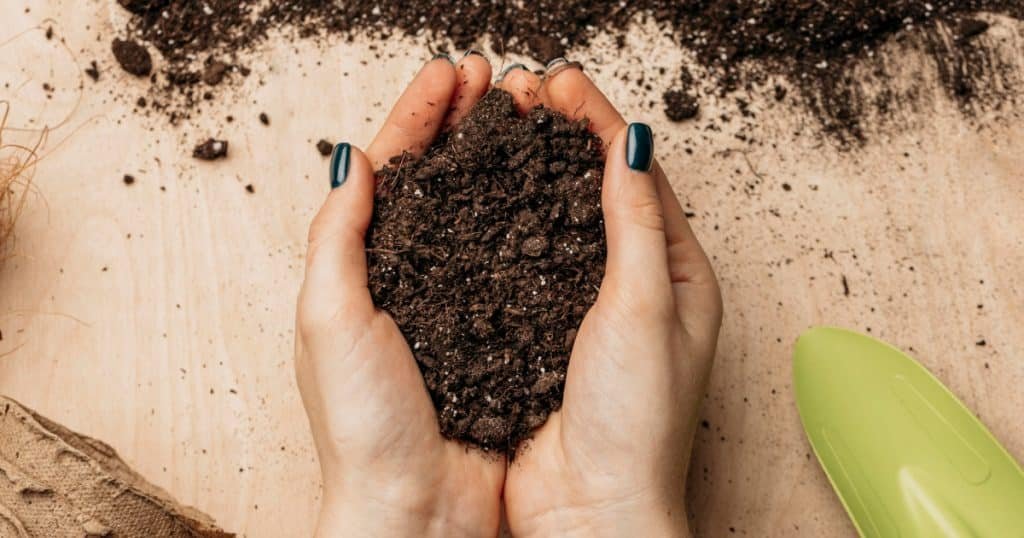
For instance, when cultivating a bonsai plant, sustainable soil management practices are essential to ensure the plant’s growth and longevity. Using organic compost and mulch helps enrich the soil with essential nutrients, promoting robust root development.
Additionally, techniques such as crop rotation and cover cropping can prevent soil depletion and maintain its structure. These methods not only benefit bonsai plants but also support a diverse and healthy ecosystem, allowing for a more balanced and sustainable approach to flower farming. By choosing flowers from farms that employ sustainable soil management, you contribute to the health of our planet while enjoying the beauty of nature’s finest blooms.
Water Conservation Techniques
Water conservation is a critical aspect of eco-friendly flower farming. Efficient water use ensures that water resources are preserved, and the environmental impact of farming is minimized. Flower farms can adopt various water conservation techniques to achieve these goals, such as drip irrigation, rainwater harvesting, and the use of drought-resistant plant varieties.

For example, cultivating an Anthurium water plant, a Birkin water plant, or a Lily water plant can be highly efficient when using drip irrigation systems. Drip irrigation delivers water directly to the plant roots, significantly reducing water wastage compared to traditional irrigation methods. This technique ensures that plants receive the right amount of moisture without overwatering, which is essential for water-sensitive species like Anthuriums and Lilies.
Additionally, implementing rainwater harvesting systems can provide a sustainable water source for flower farms. Collected rainwater can be stored and used during dry periods, reducing the reliance on groundwater or municipal water supplies.
By incorporating these water conservation techniques, flower farms can maintain their productivity while ensuring that precious water resources are used responsibly and sustainably. This not only supports the environment but also enhances the resilience and sustainability of flower farming operations.
Organic Pest Control Methods
Organic pest control methods are crucial for maintaining the health of plants and the environment. These methods avoid the use of harmful chemicals, focusing instead on natural solutions to manage pests. This approach is particularly beneficial for the cultivation of delicate plants like Echeveria succulents, which can be sensitive to chemical treatments.
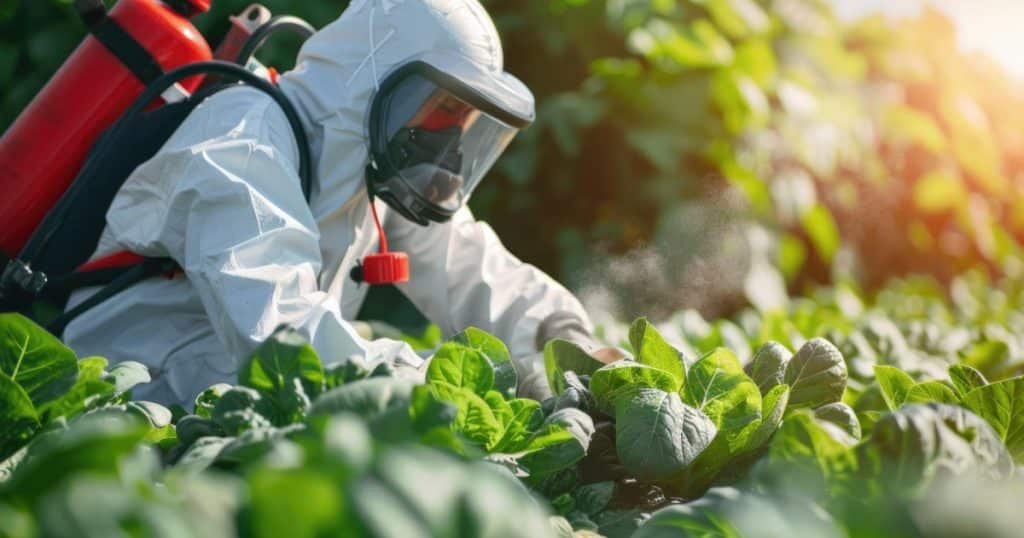
One effective organic pest control method is the use of beneficial insects. Predatory insects like ladybugs, lacewings, and predatory mites can naturally reduce pest populations by feeding on harmful insects such as aphids, spider mites, and whiteflies.
Introducing these beneficial insects into the garden or greenhouse can help maintain a balanced ecosystem where pests are kept in check without the need for synthetic pesticides. For example, Echeveria succulents, which are prone to mealybugs and aphids, can benefit greatly from the presence of these natural predators.
Energy-Efficient Greenhouses
Energy-efficient greenhouses are a game-changer in sustainable flower farming, allowing for year-round cultivation with minimal environmental impact. These greenhouses use advanced technologies to optimize energy consumption, reduce waste, and create ideal growing conditions for a variety of plants, including the Mini olive tree and the Money plant.
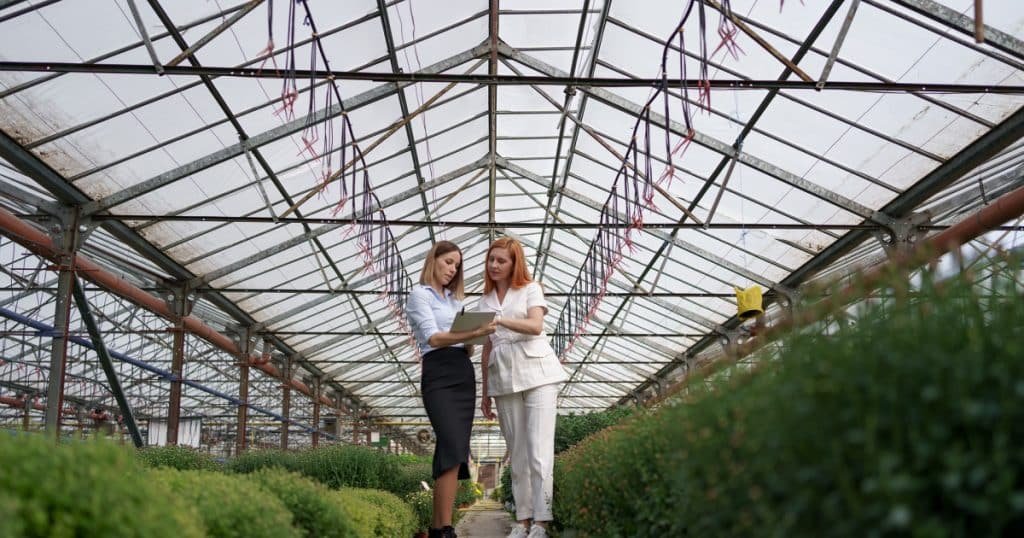
One of the key features of energy-efficient greenhouses is the use of smart climate control systems. These systems regulate temperature, humidity, and light levels automatically, ensuring that plants receive the optimal conditions for growth.
For instance, a Mini olive tree requires a specific range of temperature and humidity to thrive, and these smart systems can adjust conditions precisely to meet these needs. Additionally, energy-efficient greenhouses often incorporate renewable energy sources, such as solar panels, to power their operations, further reducing their carbon footprint.
Another important aspect of energy-efficient greenhouses is their use of sustainable materials and design principles. These greenhouses are typically constructed with high-quality, insulating materials that help retain heat during cooler months and keep interiors cool during hotter periods.
This reduces the need for external heating and cooling, thereby conserving energy. The Money plant, known for its air-purifying qualities, can benefit significantly from such controlled environments, as stable conditions promote healthier growth and reduce the likelihood of pest infestations.
By integrating these energy-efficient practices, greenhouse farming can support a wide range of plants sustainably, contributing to a greener and more productive agricultural sector.
Biodiversity in Flower Farming
Biodiversity in flower farming is crucial for maintaining a healthy and resilient ecosystem. By cultivating a variety of plant species, farmers can enhance soil fertility, attract beneficial insects, and create a more balanced environment. The Oxalis plant and Ficus Lyrata Fiddle leaf plants are excellent examples of how incorporating diverse species can benefit flower farms.
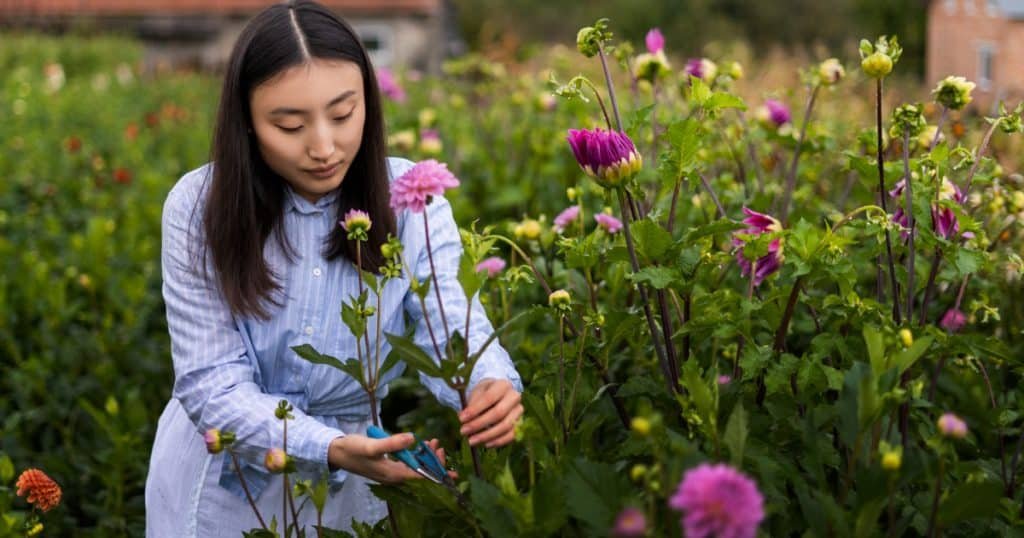
The Oxalis plant, known for its striking foliage and delicate flowers, is not only aesthetically pleasing but also plays a vital role in promoting soil health. Its roots help to aerate the soil, improving water penetration and nutrient absorption.
This contributes to a richer and more fertile soil, which benefits other plants on the farm. Moreover, Oxalis attracts pollinators and beneficial insects, which are essential for the pollination of many flower species and the control of pests.
Similarly, Ficus Lyrata Fiddle leaf plants contribute to biodiversity by adding structural variety and height to the farm landscape. These plants are excellent at improving air quality and providing shade, creating microenvironments that support different species.
The presence of such diverse plant life can reduce the risk of disease and pest outbreaks, as a variety of species can break the life cycles of harmful organisms. By integrating plants like Oxalis and Ficus Lyrata, flower farmers can create a more resilient and productive farming system, enhancing both ecological health and agricultural yield.
Use of Recyclable and Biodegradable Materials
Incorporating recyclable and biodegradable materials in flower farming is a significant step toward sustainability. By choosing eco-friendly options for pots, vases, and other farming tools, growers can reduce their environmental footprint. For instance, using the Amy white decorative pot and the Athalia glazed ceramic vase showcases a commitment to sustainability while maintaining aesthetic appeal.
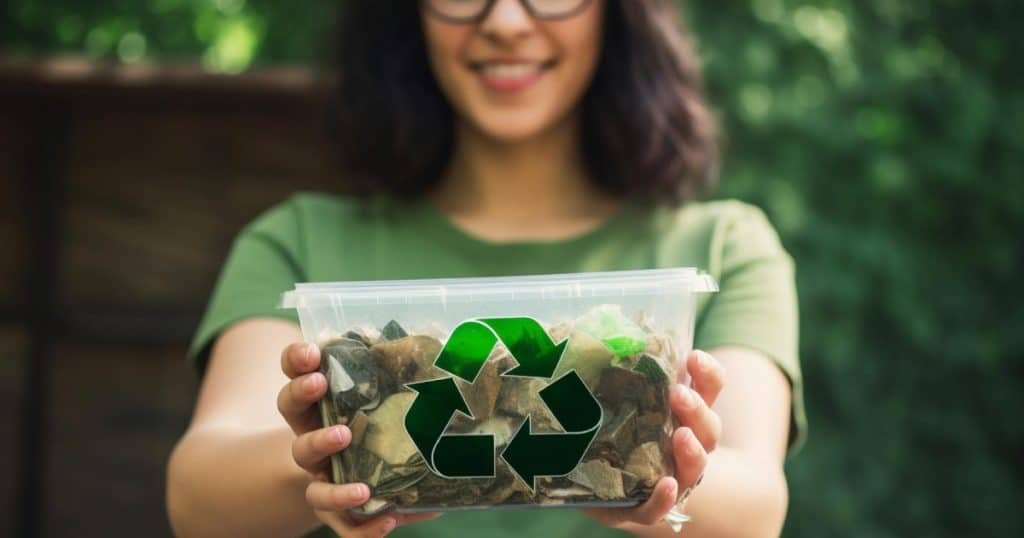
The Amy white decorative pot is an excellent choice for eco-conscious consumers and flower farmers. Made from recyclable materials, it provides a stylish yet sustainable option for planting and displaying flowers. Its durability ensures that it can be reused multiple times, reducing the need for single-use plastic pots that contribute to environmental waste. Additionally, its neutral color complements various flower types, making it a versatile choice for any floral arrangement.
Similarly, the Athalia glazed ceramic vase represents a blend of beauty and sustainability. Ceramic materials are biodegradable, breaking down naturally without harming the environment. The Athalia vase’s elegant design makes it a perfect centerpiece for any occasion, while its eco-friendly composition aligns with sustainable farming practices.
By opting for such materials, flower farmers and consumers alike can contribute to a greener planet, supporting the use of renewable resources and reducing the impact on landfills. This shift towards recyclable and biodegradable options demonstrates a growing awareness and responsibility toward environmental stewardship in the floral industry.
Final Thought
Adopting eco-friendly flower farming practices is not just a trend; it’s a crucial step toward sustainable agriculture and environmental conservation. By integrating methods such as the use of recyclable and biodegradable materials, energy-efficient greenhouses, and organic pest control, farmers can significantly reduce their ecological footprint. These practices ensure that the beauty of flowers comes with a commitment to protecting the planet, enhancing biodiversity, and promoting the health of ecosystems.
As consumers become more environmentally conscious, the demand for sustainably grown flowers continues to rise. This shift presents a compelling opportunity for flower farms to innovate and adopt greener techniques that benefit both the environment and the economy.
Ultimately, the path toward sustainability in flower farming is a collective journey that requires commitment from growers, consumers, and industry stakeholders to foster a greener future. Through continued education, innovation, and responsible practices, the floral industry can bloom sustainably, ensuring that the natural beauty of flowers is preserved for future generations.
FAQs
What are eco-friendly flower farming practices?
Eco-friendly flower farming involves methods that reduce environmental impact, such as using organic fertilizers, conserving water, and employing sustainable pest control.
Why is sustainable soil management important in flower farming?
Sustainable soil management helps maintain soil fertility, reduces erosion, and decreases the need for chemical fertilizers, supporting long-term agricultural productivity.
How does water conservation benefit flower farming?
Water conservation techniques like drip irrigation and rainwater harvesting help reduce water usage, preserve local water resources, and make farming more sustainable.
Can organic pest control be as effective as chemical methods?
Yes, organic pest control methods, which include using natural predators and plant-based insecticides, can be very effective and are safer for the environment.
What are the benefits of energy-efficient greenhouses?
Energy-efficient greenhouses reduce energy consumption and greenhouse gas emissions, making them both cost-effective and environmentally friendly.
How does biodiversity contribute to eco-friendly farming?
Biodiversity enhances the resilience of farming systems by supporting natural ecosystems that aid in pest control, pollination, and disease prevention.
What types of recyclable materials are used in eco-friendly flower farming?
Eco-friendly farms often use recyclable and biodegradable pots, trays, and packaging to minimize waste.
Are eco-friendly flowers more expensive than conventional ones?
Initially, they can be, due to the higher costs of sustainable practices, but prices may decrease as demand increases and methods become more widespread.
How can consumers identify eco-friendly flowers?
Look for certifications like Organic, Rainforest Alliance, or Fair Trade, which indicate that the flowers were grown using sustainable practices.
What impact do eco-friendly practices have on flower quality?
These practices often lead to higher quality flowers with improved longevity and less chemical residue, offering a better product to consumers.
Can eco-friendly practices be applied to all types of flower farming?
Yes, these practices can be adapted to various scales and types of flower farming, from small local farms to large commercial operations.
How can I support eco-friendly flower farming?
Choose to buy flowers from sources that prioritize sustainable practices, and encourage local florists to stock eco-friendly options.
